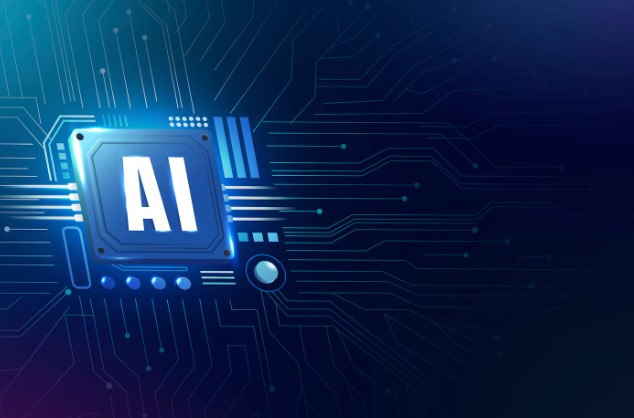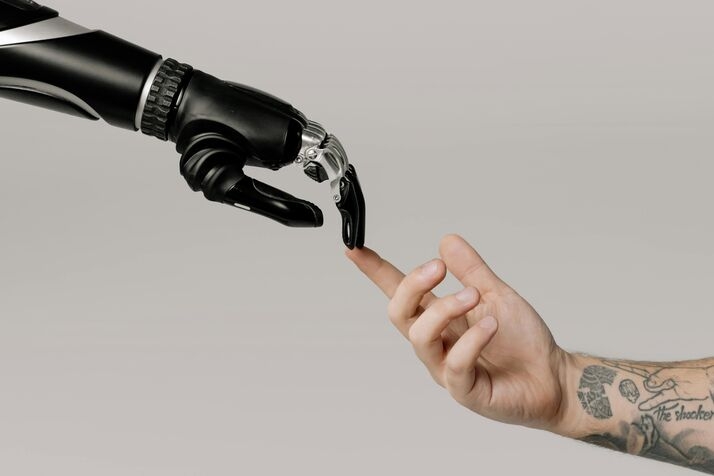AI-Powered Startups have come up and are recognized as one of the major forces that are changing the U. S. economic system. The transformation is all the way from Silicon Valley to tech hubs in the U. S. The smart companies powered by AI are using the technology to their advantage by changing the whole scenario in the areas of healthcare, finance, logistics, and education, thereby paving a new path for the coming up of American innovations.
In this blog, we explore how AI-powered startups are rapidly rising in the U.S., significantly disrupting key sectors, and effectively guiding newcomers in launching their own ventures.
AI-Powered Startups Explained
AI-powered startups are emerging new businesses that primarily rely on artificial intelligence for their core products, services, or operations, leveraging cutting-edge technologies such as:
- Machine learning (ML)
- Natural language processing (NLP)
- Computer vision
- Predictive analytics
- Generative AI
Additionally, AI helps startups automate tasks, personalize experiences, and make smarter decisions through continuous learning—an edge traditional software often lacks.
Why the USA Leads in AI-Powered Startups
When it comes to AI-powered startups worldwide, the USA is the undisputed leader, and this is justified by several compelling reasons. The following are crucial factors that drive this assertion:
- World-Class Research Institutions
Top universities like MIT, Stanford, and Carnegie Mellon drive AI research and talent, and many AI startups originate from their academic work.
- Robust Venture Capital Ecosystem
Moreover, U.S. investors poured $60 billion into AI startups in 2023, reflecting strong confidence, according to PitchBook.
- Tech-Savvy Workforce
Moreover, the U.S. labor market offers a strong talent pool of AI-focused engineers, data scientists, and developers—making it crucial for building successful AI startups.
- Business-Friendly Ecosystem
Furthermore, the U.S. tech sector thrives largely due to incubators, accelerators, tax incentives, and grants, all of which actively support the launch and growth of startups.

How AI-Powered Startups Are Disrupting U. S. Industries
The scope of AI-powered startups does not just cover a single industry but rather a range of different sectors contributing to the creation of intelligent automation and data-driven innovation across these sectors.
- Healthcare
Specifically, AI powers many healthcare applications, such as diagnostics and drug development. For example, companies like Tempus and Butterfly Network use AI to enhance patient care, reduce costs, and significantly accelerate medical discoveries.
- Finance
In the fintech space, startups like Upstart and Kensho are among those leveraging AI for credit scoring, fraud detection, and financial forecasting. As a result, these platforms help deliver smarter, faster, and more inclusive financial solutions.
- Retail & E-commerce
AI-based companies such as Stitch Fix and Vue.ai are using AI to make online shopping more intuitive, efficient, and engaging through the provision of data-driven insights.
- Logistics & Supply Chain
Similarly, logistics-focused companies like Nuro and PathAI use AI to reduce human error, improve inventory management, and further streamline supply chains by eliminating inefficiencies.
- Customer Support & Marketing
Likewise, Drift and Intercom use AI chatbots and analytics to efficiently streamline customer interactions and significantly boost real-time conversion rates.
Benefits of AI-Powered Startups
The establishment of businesses powered by artificial intelligence encompasses a myriad of benefits, among which are the following:
- Scalability: AI enables startups to serve millions with minimal human effort, driving rapid and efficient growth.
- Automation: Automating tedious tasks lets teams focus on strategy and product development.
- Personalization: AI will provide the customer base with personalized experiences of such a high level that it will naturally increase their engagement and retention.
- Data-Driven Decisions: Startups can rely on predictive analytics and machine learning models for making fast and more accurately informed decisions.
Challenges Facing AI Startups
AI startups do have great potential, but at the same time, they face some significant challenges:
- High Development Costs: Bootstrapped startups would find training models and keeping up an AI infrastructure quite costly.
Talent Shortage: There is a significant demand for AI specialists and, thus, the startups often have a hard time competing with the tech giants for the most skilled professionals.
- Ethical & Legal Issues: The technology being developed needs to be ethically sound. The issues of bias, privacy, and transparency could all have serious implications if not handled properly.
- Data Dependency: Developing AI models requires large, high-quality datasets, which can be costly and hard for early-stage startups to access.
How to Start an AI-Powered Startup in the USA
If you are a founder in the making seeking to establish an AI startup, the following is a roadmap that can steer you in the right direction:
- Identify a Real-World Problem
The startups powered by AI that become really successful will always begin with a very clear problem statement. Make it your target to eliminate the pain points, especially in those industries where AI could do so tremendously.
- Validate the Idea with Data
To begin with, carry out thorough market research and, in addition, ensure that the necessary volume of data for building and effectively training your AI models is readily available.
- Build a Lean MVP
Do not go big at first. Leverage open-source AI tools (like TensorFlow or Hugging Face) to create a minimum viable product (MVP) and get user feedback right from the start.
- Secure Funding
Either apply for startup incubators (like Y Combinator or Techstars) or pitch your idea to a venture capital firm specializing in AI that has a good grasp of your market and technology.
- Assemble a Strong Team
Furthermore, building a successful AI startup will require a cross-functional team consisting of data scientists, software developers, business strategists, and product designers.
- Ensure Compliance & Ethics
Additionally, design your AI to be transparent, explainable, and fair. At the same time, stay informed about legal regulations like CCPA and GDPR to avoid potential compliance issues.
Future Outlook for AI-Powered Startups in the USA
The future of AI-powered startups is bright in the U.S., with cloud computing, big data, and edge AI driving innovations and opportunities.
AI is impacting education, agriculture, energy, and space tech, creating first-movers who lead and shape these markets.
The National Artificial Intelligence Initiative Act supports AI innovation through funding, talent development, and ethics, fostering a stronger growth environment.
Conclusion
AI-powered startups aren’t a trend—they’re the foundation of the next tech revolution, solving major problems, creating jobs, and attracting big investments in the U.S.
Now is the time for entrepreneurs to act—AI, combined with vision and talent, can transform startups into America’s next tech success.
It does not matter whether you are a founder, an investor, or just someone curious about the future; what is certain is that AI-powered startups are the ones to show the way—and the USA is their launchpad.
